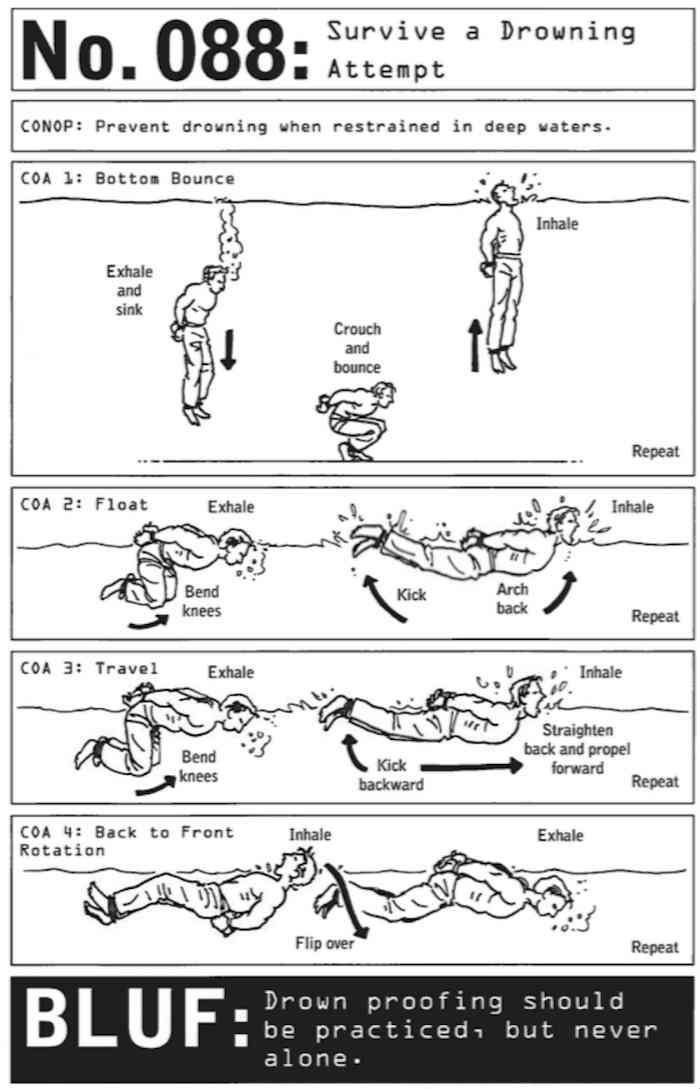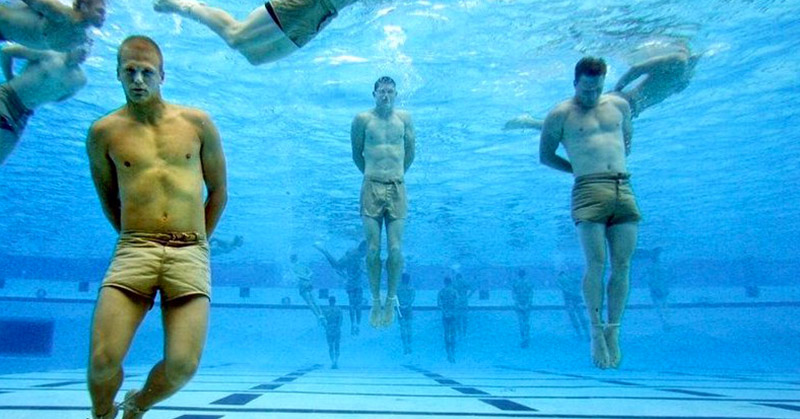Have you have ever questioned whether you really need insurance? How about ditching an insurance plan that’s costing too much? If you have, chances are that the person you were talking to probably said, “You don’t need it until you need it.”
And that kind of how we felt when we read this excerpt from Clint Emerson’s book, 100 Deadly Skills: The SEAL Operative’s Guide to Eluding Pursuers, Evading Capture, and Surviving Any Dangerous Situation.
But first, who is Clint Emerson?
Now a retired Navy SEAL with over 20 years of service under his belt, Emerson aims to serve good people around the world. Growing up, he lived in Saudi Arabia because his father worked as a civil engineer for the state oil company Saudi Aramco.
Emerson attended high school in North Dallas and enlisted in the Navy in 1994, eventually retiring in 2004. These days, he spends his time running Escape the Wolf, a crisis-management consulting company in Frisco, Texas.
Emerson has also written national bestselling “100 Deadly Skills” books that teach the average person how to be prepared for the worst and least expected situations life can throw their way.
Do This to Survive If Someone Every Tries to Drown You
You might be thinking, why on earth would I need to know this (and 99 other deadly skills)?
“Because,” he says, “in today’s dangerous world, threats to your personal safety can arise anywhere, anytime. I want you to be prepared.” (3)
God forbid you ever have to do this, but today’s deadly skill is learning what to do if someone ever tries drowning you. See the excerpt below:
“When an operative is captured in hostile territory, the odds of survival are low.
Instead of being taken to trial, he will likely simply be made to ‘disappear’ — which is why operatives practice escaping while wearing undefeatable restraints on hands and feet, both in water and on land.
Tied up, thrown into open waters, and left to drown to death, the well-trained operative still has recourse to a few skills that can help extend his life until he is found or reaches solid ground.”
This seems pretty hopeless… How do you stay alive in this situation?
“When it comes to self-preservation in water, the key to survival is breath control. With the lungs full of air, the human body is buoyant — so deep breaths and quick exhales are key.
Buoyancy in freshwater is more challenging but still achievable. Panicking, which can lead to hyperventilation, is the number-one enemy to survival.
Restraints and body positioning may make breathing a challenge, but repositioning is always within the Nomad’s grasp. In shallow waters, use a sinking and bouncing approach (see diagram below) to travel toward shore, ricocheting off the seabed or lake floor up to the surface for an inhale.
When facing down, whether floating in place or using a backward kicking motion to swim to shore, the operative should arch his back in order to raise his head above water.”
But, what if the waters are too rough?
“In rough seas, this may not give him enough clearance to get his head out of water. Instead, a full body rotation will allow him to take a deep breath and then continue travelling forward.”

The hope is that you will eventually reach dry land before you grow too tired.
Like we said above… we hope no one ever has to face this situation. That said, life has thrown crazier curveballs.

